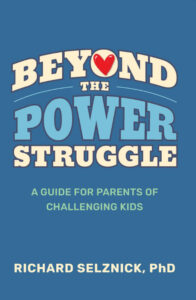 Those of you following this blog for some time know there are some recurring themes in these posts (that mostly irritate me).
Those of you following this blog for some time know there are some recurring themes in these posts (that mostly irritate me).
For others newer to these posts, I will help to bring you up to speed with some of the predominant ones.
- The LD-Discrepancy Model: Easily the number one issue that gets under my skin is the LD-Discrepancy model used in many states (New Jersey being one) to classify children in special education as learning disabled. I discussed it in my recent blog post (https://shutdownlearner.com/ineffective-inefficient-irrational-immoral-and-indefensible/), but if If you need a primer on the LD-Discrepancy model, this is a great overview: (https://www.understood.org/en/articles/the-discrepancy-model-what-you-need-to-know).
- Pathologizing Childhood: Not all child problems are neurobiological (i.e., “brain-based”) disabilities. Some issues are just kids being kids. (Please see my blog on boy executive function deficits: https://shutdownlearner.com/?s=hypothetical ). Also, sometimes the material being given to them is inappropriate to their level of reading ability. That is not an “in the head” problem. It’s a curriculum issue.
- “Diagnosing” ADHD Based on Small Data: Checking a few items (e.g., “Easily distractible….Inattentive, etc.”) on a rating scale like the Vanderbilt given in the pediatrician’s office is not enough. There are a multitude of factors that could be producing the distractibility. Many of these factors should be understood before putting a child on medication for ADHD.
- “We can’t diagnose dyslexia – you need to see a neurologist.” Parents are reflexively told this by the school when they raise concerns of dyslexia. Seriously, how many neurologists or pediatricians that you know give a battery of reading, spelling and writing tests that are necessary to assess dyslexia? At its core, dyslexia is a reading disability. How can this be determined without a battery of reading measures? Stop telling parents it is a medical condition.
- “This or That Thinking:” “I just want to get to the bottom of it,” parents will say. “I just don’t know if it’s ADD or laziness.” The problem as I see it is that there rarely is a bottom. The truth is it’s almost never, “this or that.” With most kids it’s almost always, “this and that and that.”
- Overplaying 504 Plans: Listen up, gang. The reality of 504 Plans is that they do not do that much. 504s do not offer services, but basic accommodations (e.g., extended time).
- “Hey, Bud” Parenting: I hate to break the news to parents out there, but they are your children. You don’t set limits with your buddies. You set limits with children.
- Screen Addicts: I get it. Times change. I don’t get the newspaper delivered any more. I have my phone with me most of the time and am in a froth when I can’t locate it. With that said, kids care about little else than their screen time. They are becoming addicted. We’re not facing it.
Takeaway Point: I understand that some may think that I am just saying these things because I am at the “get off my lawn” stage of life. Maybe it’s compounded by that fact, but I have been repeating these theme to parents for many years.
Perhaps getting it off my chest helps – it’s still cheaper than real therapy!!!
Feel free to make comment below.
To receive future blog posts, register your email: https://shutdownlearner.com.
To Contact Dr. Richard Selznick for advice, consultation or other information, email: shutdownlearner1@gmail.com.

 Copyright, Richard Selznick, Ph.D. 2023, www.shutdownlearner.com.
Copyright, Richard Selznick, Ph.D. 2023, www.shutdownlearner.com.

This post was helpful!
Thanks, Deanna. Much appreciated.